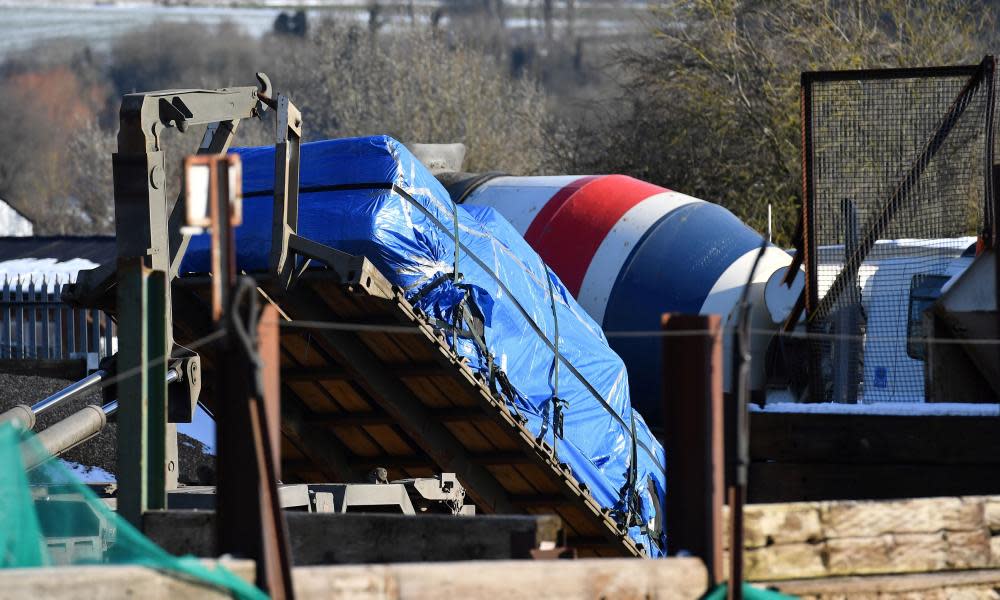Skripal case police seize vehicle in Wiltshire village

Detectives investigating the nerve agent attack on former Russian spy Sergei Skripal have focused attention on the vehicle that brought his daughter Yulia to Salisbury the day before the attempted murder.
Officers and troops sealed off a street in the village of Durrington, 10 miles north of Salisbury and close to Stonehenge, where they are believed to have seized a pick-up truck belonging to a family friend of the Skripals.
Yulia is understood to have been collected by the friend, Ross Cassidy, from Heathrow airport after flying in from Moscow on Saturday 3 March, 24 hours before she and her father were taken critically ill in Salisbury.
The development came as experts from the Organisation for the Prohibition of Chemical Weapons (OPCW) arrived in the UK to begin an independent investigation into the attack. The team is expected to visit scenes connected to the investigation and the defence science and technology laboratory at Porton Down, near Salisbury, where items connected to the attack are being analysed.
A statement from Scotland Yard said the investigation was set to last for several months as some 250 counter-terror detectives continue to analyse evidence “round the clock”.
Around 4,000 hours of CCTV footage is being examined for clues alongside nearly 800 seized items, with the force adding that 400 witness statements have been recorded so far. The “unique challenges” posed by the poisoning have made it “one of the largest and most complex investigations” faced by counter-terror police, the Met said.
Over the weekend, counter terrorism police gave more details about the movements of Skripal, 66, and his daughter, 33, earlier on the day they collapsed on a bench in the Maltings shopping centre.
They named three locations that Skripal’s burgundy BMW had been seen on the morning of Sunday 4 March including London Road, the area of the cemetery where the remains of Skripal’s wife and son lie and the scene of police searches in the early days of the investigation.
On Monday, they set up a cordon at the cement works where Cassidy is employed. In what has become a familiar scene, paramedics stood by as officers worked on a silver pick-up truck.
One resident whose home was within the cordon said they had been told the operation was in connection with the poisoning of the Skripals and that what was being recovered was contaminated.
The police have given no details of the operation but a Ministry of Defence spokeswoman said the military presence was “part of our ongoing support to help police in the investigation” who were “removing the vehicle from the area”.
More than 20 cordons have been set up or remain in place across Wiltshire and Dorset. Police have contacted 131 people who could have been exposed to the nerve agent.
A German tourist, Nicolai Wenske, who ate at the Zizzi restaurant with his family the day after the Skripals were poisoned said he had found it difficult to get any advice.
“It was strange as, day by day, it became more clear what was happening but we were just walking around [Salisbury] as normal. Nobody was telling us anything, telling us to be careful. There was no advice at all.
“By the time we got the advice [from Public Health England] a week later to wash our clothes, our 12-year-old daughter had gone away and we had to phone her and tell her to take off all the clothes she’d been wearing and put them in a cupboard. Now we have thrown them away.
“Though we have no symptoms, I am concerned about any long-term health consequences. We should have had advice a lot quicker and we want more now.”

 Yahoo News
Yahoo News 
